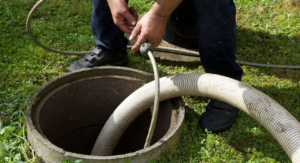Drywall Repair Naperville IL is an easy home improvement project that can add value and curb appeal. Whether you need to patch small holes or replace sections, professional services are available to address aesthetic concerns as well as structural integrity problems.
Visually inspect drywall for cracks, holes, dents, and other damage. In some cases a moisture meter can detect hidden water intrusion that may require replacement of affected areas.

Drywall cracks are an inevitability in any house, but they can be a sign of serious structural issues that need to be addressed. Often, a professional foundation repair contractor will need to be called in to perform more extensive repairs before any drywall crack can be properly repaired.
Cracks in drywall that are less than 1/8 inch wide (“hairline cracks”) can usually be fixed with spackling or drywall joint compound (drywall mud). These cracks are typically cosmetic and caused by seasonal temperature and humidity fluctuations, house settling after new construction, or poor taping and mudding practices when the drywall was first installed.
To repair these cracks, first use an electronic stud finder to locate the studs behind the damaged area of the wall. Cut away the drywall in the affected area using a drywall saw or reciprocating saw (being careful not to cut into or through the studs).
Once you have removed the damaged drywall, clean the surface thoroughly with a vacuum cleaner or brush to remove any dust or cobwebs. Apply a small amount of spackling or drywall joint compound to the crack and sand it smooth. Repeat as needed until the crack is fully repaired.
For larger holes in drywall, you may need to reinforce the hole before repairing it. If the hole extends all the way through the drywall, cut a piece of scrap drywall that is slightly larger than the damaged area. Line up the edges of the scrap drywall with the existing holes and use a putty knife to apply spackling or drywall joint compound around the hole and then sand it smooth.
Holes in drywall are common and can be caused by nails, screws, or wood anchors that protrude through the drywall. To repair these holes, first use an electronic stud finder and a drywall saw to locate the studs in the affected area of the wall. Then, using a drywall saw or reciprocating tool, cut away the damaged section of drywall. Cut away any loose drywall or plaster from the studs with a utility knife.
Nail Pops
Nail pops are little rounded blemishes on the wall where nails have protruded through the paint and plaster layer. While they might seem trivial, they’re often indicative of underlying structural problems. If left unaddressed, these can range from minor foundation cracks to bowed basement walls that might even cave in. Proactively tackling nail pops can help avoid these costly issues.
As they age, the wood studs in your home’s foundation shift and settle. This happens for a variety of reasons, including soil expansion and contraction, improper water drainage, or construction mistakes. This shifting misaligns your walls and puts pressure on the drywall, causing nails to protrude from the surface.
The first step to fixing nail pops is to locate the popped fasteners. Run your hands over the surface of the wall to feel for them. If they’re soft or yield to slight pressure, a few light taps with a hammer should push them back below the surface. If not, use a drill fitted with a #2 Phillips bit to drive the screw back into place. Ensure you choose the right length of screw to replace the nail, as a too-long one could cause more damage.
Once the nail or screw is driven in, fill the indentation with a thin coat of joint compound. A quarter-sized glob should fill most nail and screw indentions, which you can then smooth with a putty knife. Allow the compound to dry before sanding and painting.
While nail pops might seem like a cosmetic problem that can be spackled and painted over, you should always address them. These little blemishes are clear signs of foundation movement, and they’ll only get worse over time.
If you notice nail pops in a particular area of your home, it’s best to consult with a foundation repair specialist. They can assess the cause of your foundation problems and recommend the most effective course of action to stabilize your home. This can prevent further damage and save you a lot of money down the road. So don’t wait for the issue to get out of hand — give us a call!
Loose Tape
Drywall is a sturdy material, but it can get damaged in the course of everyday use. Luckily, there are a number of ways to repair these damages and restore the beauty and safety of your walls.
Often, cracks occur at the seams between drywall panels. These are natural as the lumber in your home settles, but they can be unsightly. Another common problem is when drywall tape cracks or peels. This can cause the drywall seam to be exposed and lead to further damage and moisture problems.
In this situation, it’s best to retape the entire length of the affected seam. This requires removing any loose tape, then applying a new layer of joint compound with a putty knife. After it dries, you can sand the area and prime and paint to complete your drywall repair.
A common way to repair small dents or nail holes is with spackle. This type of drywall repair is simple and quick, but it’s important to make sure the spackle doesn’t cover up the existing texture or nail hole. It’s also best to leave a few minutes to let the spackle set before you try to paint over it.
Drywall patch kits are a great option when it comes to repairing larger holes in your walls. However, you’ll need to have the right materials and a few basic tools to ensure success. First, you’ll need to cut out the damaged area. Ideally, the patch should be slightly bigger than the hole, so that it blends in better and doesn’t look as obvious. You’ll also want to make sure that the edges of the patch are smooth so that it sticks properly to the drywall.
If your drywall is in need of repair, it’s essential to seek professional help. A reputable company will be able to provide the best repairs and prevent further damage from occurring. They’ll also have the proper tools and knowledge to help you refresh your walls with a fresh coat of paint.
Repairing Holes
Drywall, or gypsum board, is the construction material used to create walls and ceilings. It is durable and relatively easy to work with, but it’s not immune to damage. Minor blemishes like nail holes and dents can be easily repaired with a patch kit or by using your own tools and a bit of patience. Larger holes will require more finesse and may take a little longer to complete. Before you begin, make sure the area is clean and free of dust and debris that could interfere with the adhesive on the drywall patch.
Nail holes are one of the most common types of drywall damage. You can easily repair these holes by applying a layer of joint compound with a putty knife and then smoothing it out. Once the compound has dried, you can paint over it. It’s important to use a primer when you apply the first coat of paint, but you can skip it for subsequent coats if desired.
To fix a larger hole, you’ll need a drywall patch and joint compound. You’ll also need a straight razor or utility knife, and a drywall saw if you need to cut the patch into shape. Before you apply the patch, you’ll need to mark the edges of the hole using a framing square or a tape measure. You’ll want to be sure the patch is perfectly rectangular so it will fit well on the wall.
Once the patch is in place, you’ll need to add a second coat of joint compound with your putty knife. After the second coat dries, you’ll need to smooth and feather it so the patch blends into the rest of the wall. This will take a bit more time, but it will give you a much more professional look.
It’s important to keep up with drywall repairs as needed to maintain the integrity of your home’s structure and appearance. Small cracks and holes can easily be repaired before they become more serious issues, so it’s worth taking the time to address them as soon as you notice them. If you’re unsure of how to proceed, contact a reputable professional for assistance.

